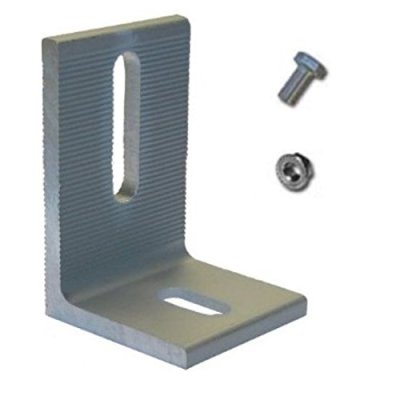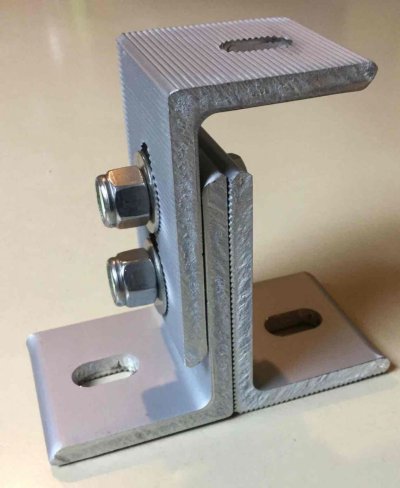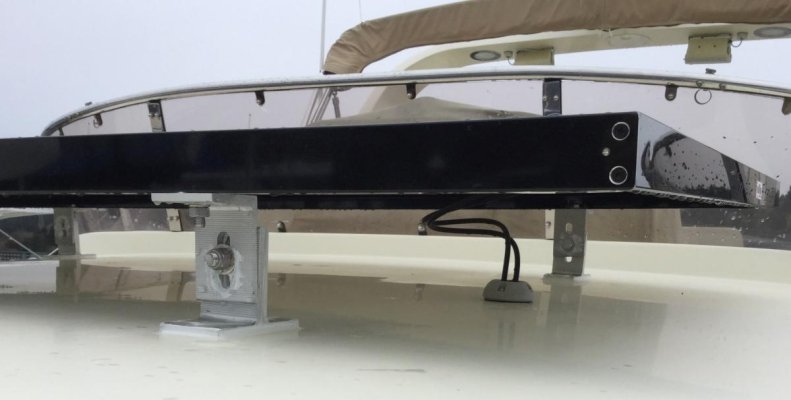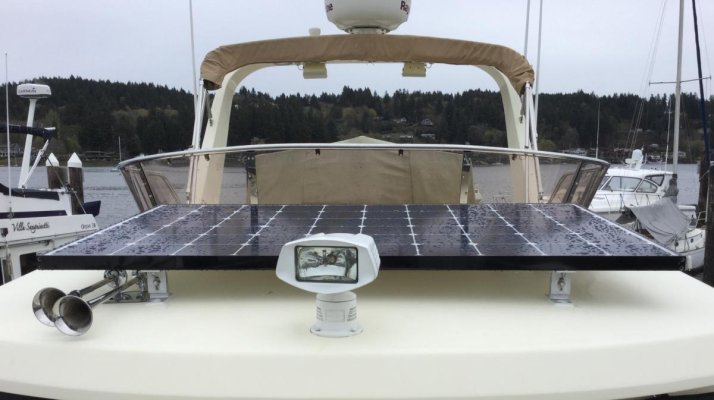dhays
Guru
- Joined
- May 26, 2015
- Messages
- 9,045
- Location
- United States
- Vessel Name
- Kinship
- Vessel Make
- North Pacific 43
I mounted a full size panel on my PH roof. I found an AL “L” bracket designed for solar panels, but used three of them to creat an adjustable mount. I then mounted these four mounts to the PH roof using 4200.
This panel has been there for a few years now and has faced all kinds of high wind and jarring seas. It has worked great.
This panel has been there for a few years now and has faced all kinds of high wind and jarring seas. It has worked great.





 .
.